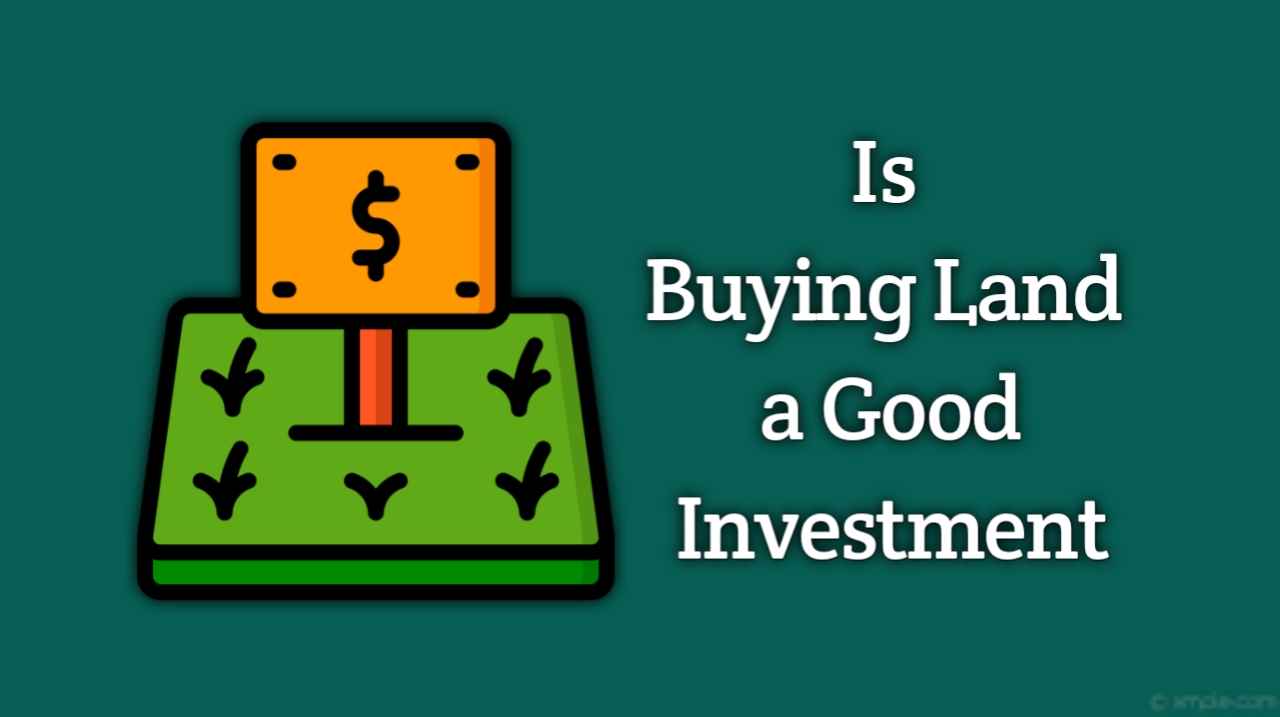Thank you for reading this post, don't forget to Join Our Telegram Group! CLICK HERE TO JOIN NEW
Is buying land a good investment: Real estate has long been considered a reliable investment option and purchasing land is an interesting option for investors looking to diversify their portfolio.
However, like any investment, buying land comes with its own advantages and disadvantages.
In this comprehensive analysis, we examine the factors that make purchasing land a potentially lucrative investment, as well as the considerations that require careful consideration before making a decision.
Advantages of buying land as an investment:
Limited supply and inherent value
Land is a finite resource and its supply cannot be increased. As population growth and urbanization continue, demand for land increases, which can lead to an increase in value over time. This inherent scarcity provides a solid foundation for long-term land value appreciation.
Potential for appreciation
Historically, land has a tendency to steadily appreciate over time. As cities grow, properties in desirable locations can increase significantly in value, making them a potentially profitable investment.
Versatile in use
Land offers investors the flexibility to use it in a variety of ways. It can be developed for residential, commercial or industrial purposes or even used as agricultural or recreational property. This versatility allows investors to adapt their strategy to market conditions and changing economic trends.
Tangible asset and security
Unlike other investments, land is a tangible asset that can be seen and touched. Owning physical property can provide a sense of security since land cannot be easily stolen or destroyed. It can serve as a hedge against inflation and economic uncertainty.
Tax benefits
Investing in real estate can provide tax advantages, such as property tax deductions, interest expense, and depreciation on income-producing properties. Additionally, holding on to land without immediate development may result in capital gains tax being deferred until a later sale. [Is Buying Land a Good Investment]
Disadvantages of buying land as an investment:
Lack of immediate income
Land generally does not provide immediate income, especially if left undeveloped. Unlike rental properties or dividend stocks, real estate can take some time to generate returns.
Holding costs
Owning property comes with ongoing costs such as property taxes, maintenance and insurance. These holding costs can add up, especially for larger or non-income-producing properties.
Market and economic risks
Like any real estate investment, the value of land is subject to fluctuations in the market and general economic conditions. A downturn in the real estate market or an economic recession can impact property values, potentially resulting in temporary or prolonged loss of value.
Development challenges
Developing land for profitable use often requires dealing with complex zoning regulations, environmental considerations and infrastructure development. These factors can increase costs and extend the time frame for achieving return on investment.
Location and market demand
The potential for property appreciation depends heavily on location and market demand. If the property is in an area with limited growth prospects or is not attractive, its potential for appreciation may be limited. [Is Buying Land a Good Investment]
FAQs
Is buying land a good investment?
Buying land can be a good investment with long-term appreciation potential.
What are the advantages of investing in land?
Land offers a limited supply, potential for appreciation, versatility in use and security of property.
Do land investments bring immediate returns?
No, unlike rental properties or dividend properties, land typically does not generate immediate income.
What are the risks of buying property?
Risks include market fluctuations, economic downturns, development challenges and holding costs.
What factors influence the potential for property to increase in value?
Location, market demand and local growth prospects have a major impact on the potential for property to increase in value.
Conclusion: Is buying property a good investment?
Buying land as an investment can be a viable strategy for those looking to diversify their portfolio and participate in the real estate market. The limited supply of land, the potential for appreciation and the versatility of use make it an attractive option.
However, investors must carefully consider the lack of immediate returns, holding costs and market risks associated with land investments.
Success in property investing often depends on conducting thorough due diligence, understanding the dynamics of the local market, and having patience until a return is achieved.
Ultimately, with the right approach and long-term vision, purchasing land can be a rewarding and meaningful addition to an investor’s financial strategy.
Join My Telegram Channel And Dont Forget To Share
